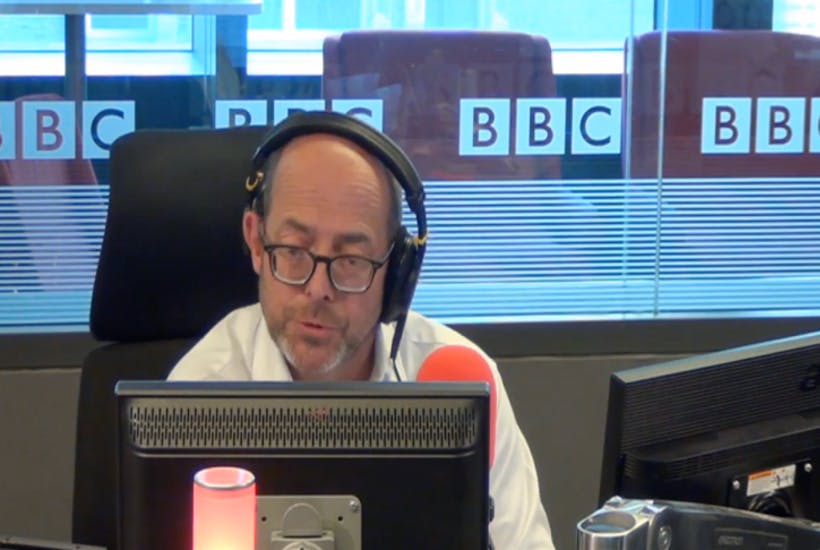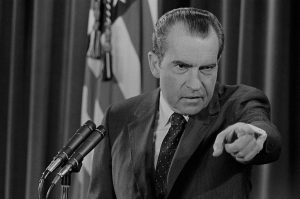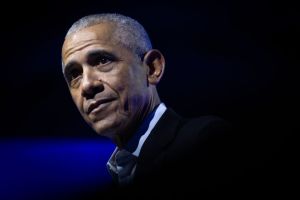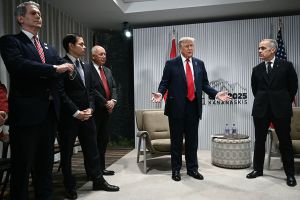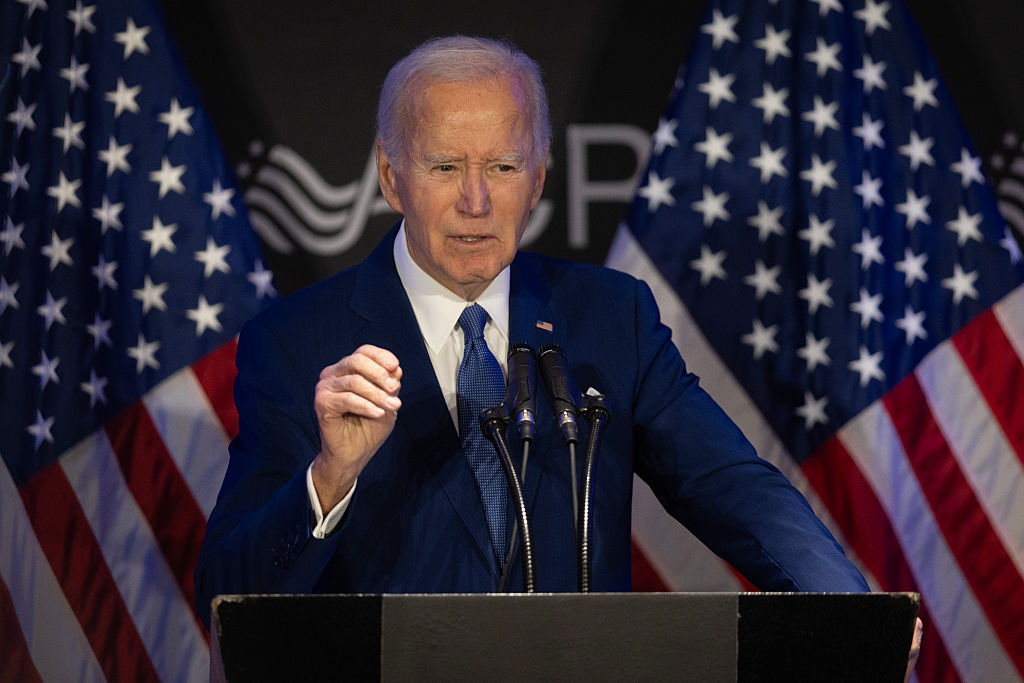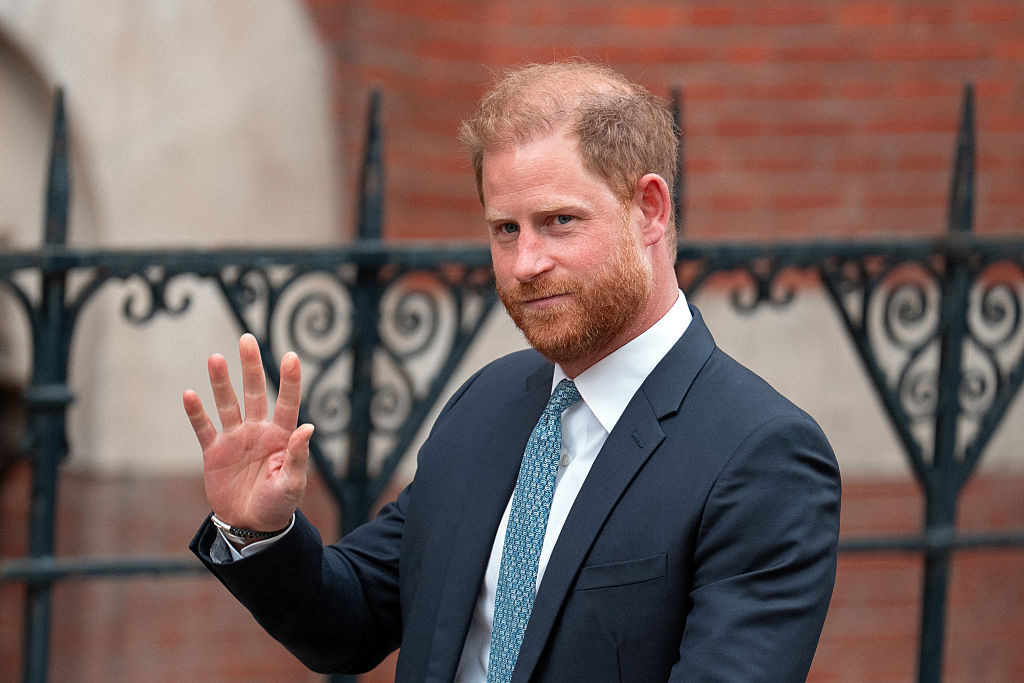Ah, the BBC. There’s really nothing like it is there?
This morning I had the pleasure of appearing on BBC Radio 4’s Today program. I know what you’re already thinking: ‘You fool, you fool – it’s a trap’. But I was phoned last night and asked if I would come on this morning to discuss Barack Obama’s recent remarks against ‘wokeness’.
At some inconvenience to myself I rearranged my schedule, got up early and headed to the BBC. Only to discover that I was today’s BBC effort at replaying the recent Rod Liddle – Emily Maitlis exchange.
I was on with a professor of grievance studies from the University of Birmingham called Kehinde Andrews. Which is fair enough. But poor Kehinde barely got a chance to talk, because as with Maitlis vs. Liddle, Nick Robinson (who was presenting Today this morning) seemed to think that his principle job was to ‘call out’ this terrible Murray man who his producers had invited on.
We managed to get roughly one-and-a-half questions out about what Barack Obama had said. And then Nick Robinson inadvertently demonstrated the problem Barack Obama and I have tried to warn against by promptly trying to ‘cancel’ me.
Specifically, he suddenly started asking about a piece of mine from after the third terrorist attack of 2017 (a context he chose not to provide) which had the headline ‘Never mind singing John Lennon songs… if we want peace then we need one thing – less Islam.’
Of course Robinson just quoted the last bit of this headline and then put it to me that this is exactly the sort of statement that should allow people to be ‘canceled’.
There are a number of ways that you can respond to an ambush like this. I mentioned that of course we can do this to every writer and journalist if we wanted to. Neither Nick Robinson nor any of his BBC colleagues are remotely as pure as they would have to be if they really wanted to assume the jobs of judge, jury, hangman and sexton. For as Obama was trying to point out yesterday, nobody can really pass the ideological purity test that some people in the culture are currently trying to enforce. As Obama said, ‘The world is messy. There are ambiguities.’
Since I had been called in to talk about the former president and the similarity of his words with what I wrote in my recent bestselling book (the title of which Robinson additionally managed to mangle) I thought it best not to get into a long defense of a two-year old headline. But I did point out that there is a certain inevitability to the sort of ambush he was trying to do. And though I wanted to stick to topic, this led to the whole of the rest of the segment being dedicated to answering Robinson’s ambush rather than the subject I had been invited on to discuss.
But it is noteworthy. Kehinde Andrews, for instance, has said plenty of unpleasant things about this country and may well have offended many more people with his remarks than I have ever managed. And I suspect that on a range of issues I speak for a larger proportion of the general public than he does.
But of course Nick Robinson wasn’t interested in ‘calling out’ Kehinde Andrews. Instead (as Rod discovered with Maitlis) with the BBC there is a 100 percent inevitability that if they have someone on who they see as being on the ‘right’ and someone else from the ‘left’ then the BBC will only perform this trick on the person from the ‘right’. That is because – as everyone who has ever worked there admits in private (and a few admit publicly) – the BBC is an ideologically left-leaning organization which on issue after issue is opposed to the views of the public who pay for it.
Anyhow – this isn’t a moan. I’m happy that I said what I could in the time allocated, even if almost none of it pertained to what I was invited on to speak about. People can listen to the interview here.
But one final reflection. In recent years, a lot of people from the BBC have approached me to ask what has gone wrong with their own programs. I’m also fairly often approached by people from the corporation asking me to help them get on various prominent guests who they are having trouble booking and who they wish me to help persuade.
In recent years these asks have increased because a growing number of people no longer need the BBC and regard it as an ever-less attractive or necessary platform to appear on. There are a number of reasons for that. One is that in the age of long-form podcasts listened to by millions it is unclear why anyone would want to go on a program where you are in a four-minute ding-dong, most of the airtime in which is taken up trying to correct the presenter’s mischaracterizations of you.
Another is the certainty that if you accept an invitation your good will almost certainly will be abused by pulling exactly the sort of unenlightening ambush that Nick Robinson tried this morning. Another reason is simply the growing sense that the real conversation is happening elsewhere.
There are some excellent people at the BBC and a few exceptional interviewers. But by and large the action is no longer there. On Monday night, The Spectator held an event in London where Lionel Shriver and I spoke about the themes of my recent book. Two thousand people paid to come out to one of the largest venues in London. A vast proportion of them were young. And if the questions during the event and the conversations I had with a couple of hundred of audience members afterwards were anything to go by, they were not only politically and otherwise diverse, but seriously informed and smart. An in-depth and fearless discussion for an hour and a half was meat and drink to them. As it is to me. That was a real discussion.
Events like the Today program, by contrast, are ephemeral and insignificant things which – however much they aspire – just keep failing to address the serious issues of our time.
If anyone is in any doubt on that, compare the Today program this morning with Monday night’s Spectator event (which you can watch here). And wonder which performs the greater public service.
This article was originally published onThe Spectator’s UK website.



